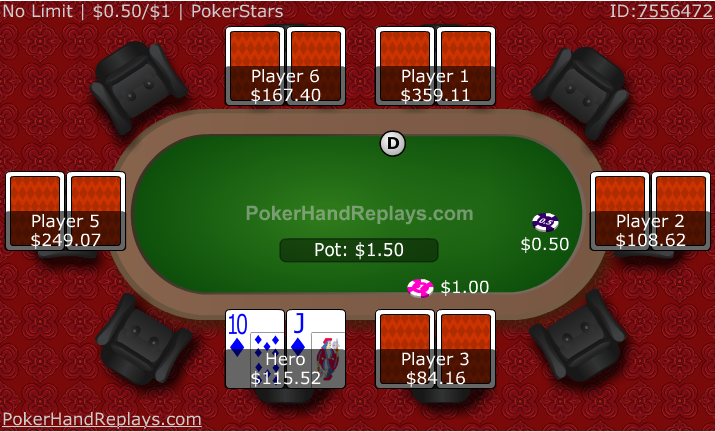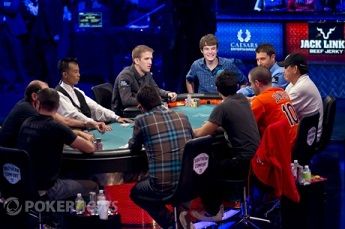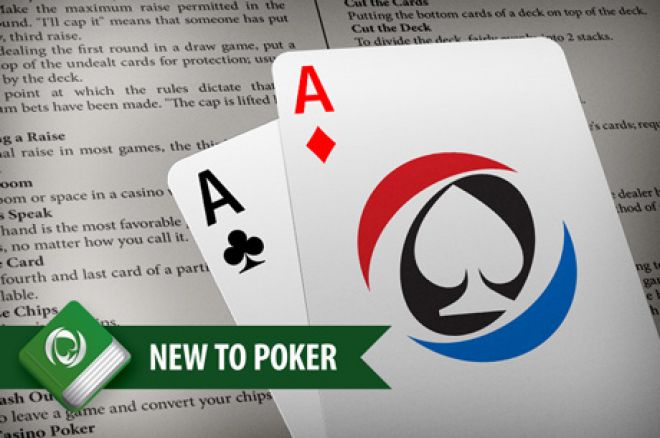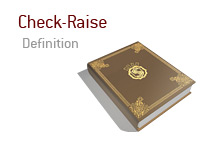What Does Call Raise Check And Fold Mean In Poker
The 'check raise' is one of the strongest and arguably the most effective moves in Texas Hold'em poker. Regarded by some as a dishonest move and even banned in certain card rooms, there is no doubt that the check-raise is an important weapon in any winning player's arsenal.
A check-raise is made when you check when the action gets to you, with the intention of raising if your opponent bets, hence the name 'check-raise'.


The Check-Raise. Let's say that a player checks and another player puts in a bet. When the betting comes around to the player who checked may either fold, call the additional but - or raise! If he raises here his move is called a 'check-raise.' This is not really a rule per se but it's still good to know what check-raising means. Many players would also fold a weak ace, something like A-5 suited, to a check-raise like this. These hands likely comprise more than half of your opponent’s betting range, and therefore the.
As you can imagine it is an interesting move because at first you show weakness to your opponent by checking, and then coming over the top of them to show a great amount of strength. This is why it can be regarded as dishonest as it is such a deceptive play, 'trapping' your opponent's bet into the pot.
So why should you use the check raise?
The check raise is useful in both bluffing your opponents out of pots and getting more money into the pot when you have a good hand. The check-raise also brings a dynamic element to your game by making you become more unpredictable to your opponents.
It is rare to find an amateur player using this move in a poker game, so if your opponents see you using this move they can be fairly sure you know how to play good poker, and may think twice about bluffing you out of future pots. Below are the two areas that describe how the check-raise can be used for bluffing, and getting more money into the pot with a strong hand.
Check raise example.
$0.50/$1 No Limit Hold'em cash game - 6 Players
SB: $100
Hero (BB): $100.00
UTG: $100
MP: $100
CO: $100
BTN: $100
Pre Flop: ($1.50) Hero is BB with 7 8
2 folds, CO raises to $4, 2 folds, Hero calls $4
Flop: ($9.50) 6 6 9 (2 players)
Hero checks, CO bets $6, Hero raises $18, CO folds
Check-raising as a bluff and semi-bluff.

The check raise is arguably the strongest move in poker, and so for this reason it is exceptionally useful when trying to pull off a bluff. This move is most effective against one opponent and becomes less successful as you increase the number of opponents, which could really be said for any type of bluff. 3 criteria should be met in order to make a good check raise:
To pull off a check-raise you have to be in first position for the obvious reason that you have to be checking into your opponent to make them bet. If your opponent does indeed bet, then if you raise your opponent you are showing such a high amount of strength that your opponent will fold any marginal hands.
A check raise will only work when you are first to act, otherwise you will simply be raising (if you are last to act).
There are certain criteria you should follow in order for this to be successful.
- You should be confident that you opponent holds a marginal hand.
- You should re-raise at least twice the amount of your opponent's bet.
- The pot should be relatively small.
- It is advisable to have some sort of drawing hand or marginal hand.
Be confident that your opponent has a hand they can fold.
Firstly, if you believe that your opponent holds a monster, there is little to no chance that a check-raise will get them off the hand. If you know that your opponent regularly bets after a person checks to him with no hand or with small to middle pairs, there is a far greater chance that a check-raise in this situation will work.
Make a strong raise.
Secondly, the re-raise made by you should be at least twice your opponent's bet. For example if your opponent bets $5 into a $10 pot, you should bet $15, re-raising another $10. This is because a minimum re-raise is likely to have little effect on your opponent, because they will only have to call a small amount relative to the size of the pot in order to see the next card. However, if you are re-raising them at least twice the amount they bet, it will make them think a little bit harder about whether they want to pay as much to see the next card.
Aim to make re raises at least twice the size of your opponent's bet. You do not want to give them good odds to call by minimum raising.
Check raises tend to be more effective in small pots.
Thirdly, you are more likely to pull off a bluff when the pot is small. This will be because the amount your opponent must call to see the next card will be larger relative to the size of the pot, giving them the wrong pot odds or to call to make a second pair or to make their draw. Therefore a check-raise will be more effective on the first actual round of betting, such as on the flop in Hold'em. If there is no betting on the flop then a check-raise will still be as effective on the turn because the pot has remained the same size, because there will have been no betting since the pre-flop betting round.
Finally, you will save yourself more money in the long run if you hold a drawing hand, due to the fact that your opponent will occasionally call your re-raise. If you have no hand, you will have to check and give up your hand to any bets on future rounds, losing the full amount of money you used in the actual raise.
However, if you have a good draw when your opponent calls, you stand a chance of taking the whole pot when you make your draw. In addition to this, you are likely to get a free card after after-check raising on the flop, because your opponent will be afraid to bet into you on future rounds. Giving you extra opportunities to make your draw.
Check raising for extra money.
If you hit a monster hand in poker, your main objective is to get as much money from your opponents as possible, and this is where a check-raise comes in handy. Unlike in the situation mentioned above, you want to use the check raise a little more passively to avoid scaring your opponents out of the hand. As with using this move to bluff opponents, there is another set of criteria that will make this play successful when followed correctly.
- The check-raise for extra money is more effective against multiple opponents.
- Be sure to be in first or early position.
- Do not check-raise too much.
It is advisable to check raise for extra money when there is more than one opponent in the pot, otherwise the move will do what is mentioned in the first part of the article, showing too much strength and making your opponent fold his marginal hand.

In the majority of situations, you are better off betting straight out as opposed to going for the check raise. However, it is a handy play to have in your arsenal in the right spots.
It is better to attempt a check raise when you are in one of the earliest positions in the hand, because if you are one of the last few to act, then you cannot be sure that any of the players behind you will bet to give you the opportunity to raise.
Although you want to extract as much money form your opponents as possible, a large re-raise may scare them all out of the hand. By minimum raising you are giving you opponents a greater incentive to put more money into the pot, because it is not costing them as much to see the next card.
Be sure when you do check-raise to extract extra money from your opponents, that your hand is virtually unbeatable. You do not want to be making minimum re-raise if the board is coordinated enough that your opponents hold hands that could possibly out-draw you.
Check raise evaluation.
When used correctly, the check-raise can be used to your advantage when you do not hold a strong hand, and when you hold a very strong hand. It is well worth your time and effort learning the principles put forward in this article, as it will prove to be of a tremendous value to your poker game.
This article covers the basics that you should know to help you understand how to effectively use this move. Be careful not to over-use this move, as it will lose its credibility the more you use it against the same opponent. The check-raise also requires a certain amount of knowledge about your opponent, which cannot be thoroughly taught through articles. So get out there and practice!
Related articles.
Go back to the awesome Texas Hold'em Strategy.
Comments
Bullies are a fairly common subspecies of poker player. You can’t spend too long at the tables without running into one. They bet and raise with reckless abandon. Playing against them can be scary, like riding a bucking bronco.
Let’s talk about three general strategies for playing against the poker bully, two of them wrong, one of them right.
One temptation is to try to out-bully the bully, to punch back even harder than he is hitting. The problem is that you are pretty much reduced to flailing away wildly, kind of like Ralphie in A Christmas Story when he finally loses it and goes nuts on the bully Scut Farcus. It might work, but it’s risky and costly. In the poker setting, it also leaves you wide open to being exploited by other players who are smart enough to wait to trap both of you with a monster when you’re trying to out-bully each other with mediocre holdings.
A second temptation is to go into highly defensive mode — that is, to tighten up even further, waiting for the rare premium hand before playing back at the bully. There are two problems with this. First is that you’re missing out on lots of money that the bully is putting into pots with weak hands which you could win if you were braver. The second is that even minimally intelligent bullies will figure out that the guy who punches back once an hour is doing so only when he has a big hand. He’ll just fold, giving you one pathetic little pot for all your patience and consternation.
The third option — and the correct one — I learned from Mike Caro’s writings. In fact, I think it’s the single most profitable piece of poker strategy advice I’ve ever encountered:

A poker bully is by definition too aggressive. In order to be a bully, he must make a fundamental mistake — he must bet and raise too often. When an opponent makes a mistake, there’s always a way to take advantage. Here’s how to take advantage of a poker bully:
Call more often. Because a bully is betting more hands, it’s obvious that he must be betting more than just the ones you would normally bet. This means you can relax your calling standards and still make a profit.
Bet less often. A key to defeating a poker bully is to let him hang himself. Since his major mistake is betting too liberally, you should give him every opportunity to defeat himself by repeating that mistake. You should check and call frequently. You should also bet less often when a poker bully checks into you, because a bully likes to check-raise a lot. Therefore when he foregoes the opportunity to be a betting bully, you should be wary of a check-raising bully. Just check along.
When you do these two simple things, the bully has a losing expectation against you. And, in the long run, he cannot win. Sometimes it’s tempting to “out bull” the bully by being even more aggressive than he is. That’s the wrong answer. You can’t win at poker by exaggerating the same mistake an opponent is making.
Read the whole article on Caro’s web site here.
Can such a simple formula actually work? Yes. Absolutely it can.
I fondly remember one poker session in which a bully figured prominently. I joined the game and watched him raise the first five hands in a row. He was running over the table, cowing everybody into conceding him pot after pot while almost never having to show a hand.
When a seat opened up two to his left, I made a beeline for it. Caro’s formula is much easier to apply when you have position on the bully.
Then I just started calling him down with medium-strength hands. This took some courage, because he tended to bet big when he was bluffing, since he wanted to induce folds, and I usually try to avoid playing big pots with just one-pair kind of hands. But those are often enough to beat a guy who’s betting with nothing.
Eventually he gave up and said, “I’m done trying to bluff you.” But it was too late. In a $1/$2 no-limit hold’em game I had made $399 in under two hours — almost all of it from the bully’s stack. He had lost the stack he’d had when I sat down, plus two more buy-ins.
I was not the only one to profit. The other players caught on to what I was doing, and copied it. Somebody was calling down the bully every time he tried to win a pot by hammering at it with big bets. Once a bully has been shown to be just a weakling in a scary disguise, all of his former victims are eager to get their licks in.
I love the simplicity of the strategy of just calling the bully. Of course, sometimes he gets lucky and hits something big, and you look pretty foolish calling three times with not much of a hand. But in the long run, those instances are far outweighed by both the monetary effect of his too-frequent bluffing and by the psychological effect that you have on him by not backing down to his attempts at intimidation.
In a Card Player magazine column a few years ago, Bob Ciaffone penned a wonderful apothegm that neatly sums up the same concept in a different way:
“We know you can fight fire with fire, but what is wrong with fighting it with water sometimes?”
What Does Call Raise Check And Fold Mean In Poker Room
Robert Woolley lives in Asheville, NC. He spent several years in Las Vegas and chronicled his life in poker on the “Poker Grump” blog.
Get all the latest PokerNews updates on your social media outlets. Follow us on Twitter and find us on both Facebook and Google+!
What Does Call Raise Check And Fold Mean In Poker Table
Tags
no-limit hold'emcash game strategytournament strategyMike CaroBob CiafffoneRelated Room
888pokerRelated Players
Mike Caro